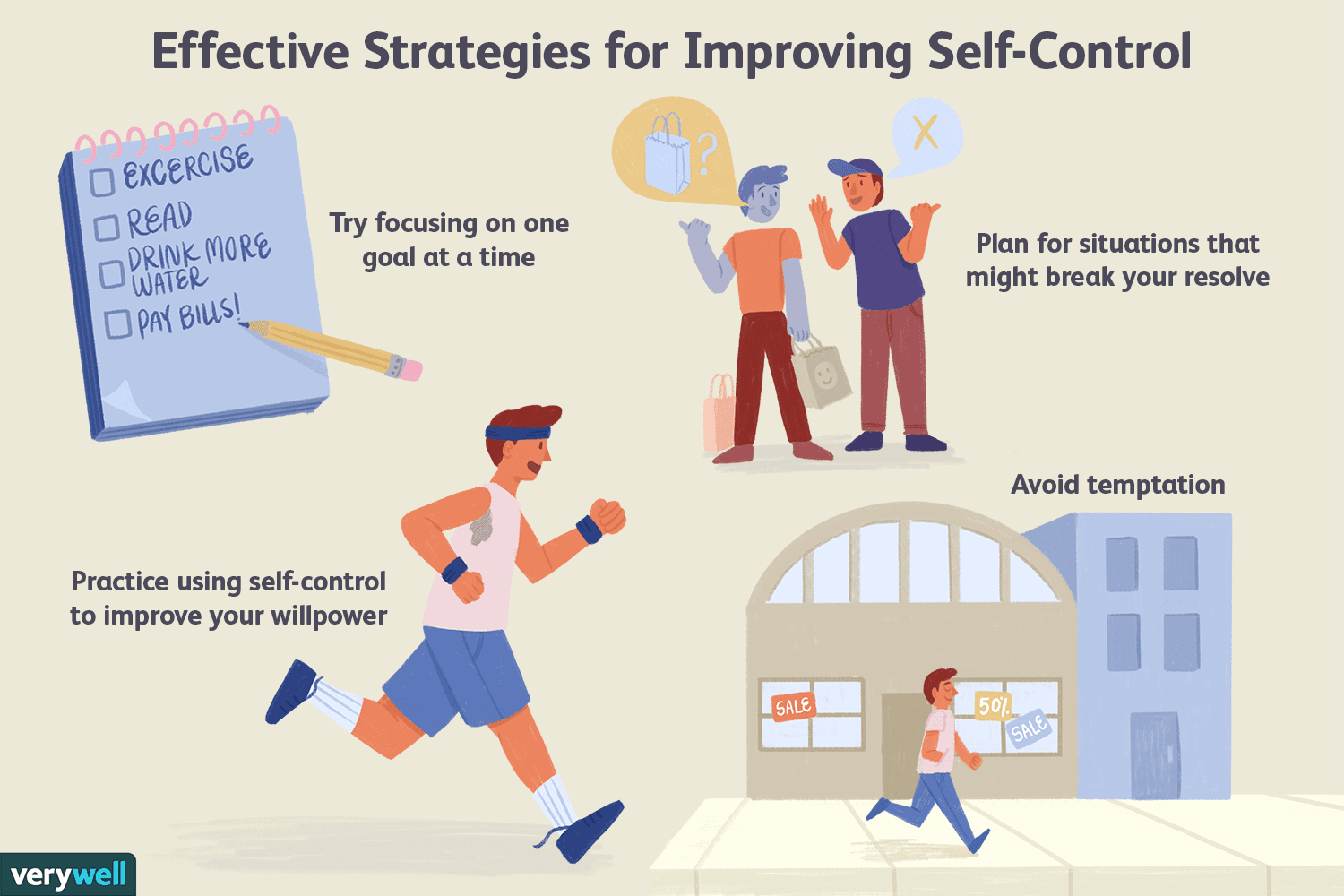/psychology-of-self-control-4177125_v2-1519c48033f94be783e79f3adce2821d.png)
Have you ever noticed that you exercise more restraint during particular periods of the day? It turns out that there is a lot to be said about that in the science of self-control and willpower. In fact, by comprehending how consumers’ self-control functions (and when it doesn’t), we can forecast what time of day they are most likely to give in to the impulse to splurge.
The finite resource theory is the most widely used scientific model of self-control and willpower. In short, every time you choose to use self-control (such as deciding to forgo dessert or read a book instead of watching TV), you deplete part of your “cognitive resources,” which means that the more you use self-control, the more difficult it will be to use willpower in the future. You’re more likely to succumb to a piece of cake later that night if you choose to eat healthily throughout the day rather than unhealthily, and to exercise rather than laze around. You’ll also find it more difficult to resist an alluring impulse buy because willpower is a limited resource.
Roy Baumeister was the initial proponent of this concept of self-control, and he calls this process of depleting your mental resources “Ego Depletion.” Consumers undergo ego depletion while they make decisions, which makes it difficult for them to maintain self-control. Although cognitive resources might be depleted, they can also be restored. For example, taking a break, eating a meal, having fun, or being aware of ego depletion can all help.
Baumeister frequently uses the analogy of a muscle to explain the concept of a finite but replenishable resource. A consumer’s willpower muscles become increasingly worn out the more they are used. This exhaustion, though, is just momentary. It is also possible to build one’s willpower with practise, much like a muscle.
Willpower decline due to the ego depletion effect
Customers are more likely to indulge and to make purchases when their egos are low. They will also experience phenomena like the Foot-in-the-Door Effect, the Decoy Effect, or the Primacy Effect since they are more receptive to environmental nudges. This makes us marketers wonder: When and how do clients run out of resources?
One chance is to give your visitors a choice between two products and ask them which they prefer. This will force them to make difficult product trade-offs. In addition to increasing engagement and ego depletion, this can also enable you to do in-the-moment market research. As an alternative, you may ask them pertinent survey questions that they can respond to if they choose, similar to the Fennis, Jansen, and Vohs (2009) study. These survey questions can be customised using information to raise the level of interest for specific consumers and, as a result, the likelihood that they will invest the cognitive resources required to respond.
Ego depletion effect timing
Ego depletion’s ability to forecast that consumers will (generally) exercise less restraint later in the day is one of its more intriguing effects. In other words, people tend to have high self-control in the mornings since sleep is one of the things that efficiently restores willpower. They undergo ego depletion as the day progresses, which reduces their cognitive resources later in the day as they make judgments, work, or contemplate. The logical conclusion is that later in the day, your potential clients will be more interested in (or at least more inclined to purchase) your products.
The fact that eating can also act as a means of reinforcing willpower is a significant qualification to this supposition. The results of a Roy Baumeister and E.J. Masicampo discovered that blood glucose levels had a propensity to be positively correlated with willpower, indicating that having a meal directly contributes to the recovery of cognitive resources.
A recent essay by Shai Danziger, Jonathan Levav, and Liora Avnaim-Pesso examined Israeli court judgments in which a single judge would listen to many appeal cases back-to-back as an even more extreme illustration. They discovered that judges’ tolerance (and readiness to consider the specific facts) decreased after eating, and that judges who had recently eaten were much more likely to listen to a defendant present their case.
Takeaways
The Ego Depletion Effect’s core tenet is that self-control is like a muscle: if consumers exercise it excessively, it becomes depleted and they are more prone to indulge.
How to use the ego depletion effect in the operations of your organisation. Consumers’ self-control might become worn out when they have to make a lot of decisions and when they give something a lot of thought.
Customer restraint will be at its peak in the morning and immediately following meals, timing the Ego Depletion Effect.
